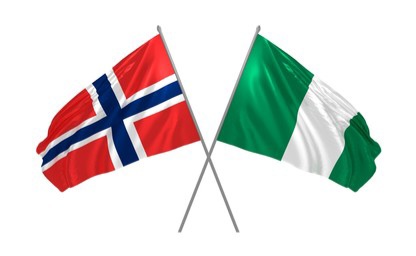Nigeria, Norway partnership targets inclusive peacebuilding, youth empowerment
“Nigeria’s youth are no longer a time bomb but our greatest asset”, declared Eghosa Osaghae, Director General, Nigerian Institute of International Affairs (NIIA), as Nigeria and Norway deepened their partnership to drive inclusive peacebuilding and youth empowerment through research, dialogue, and policy innovation.
At a seminar hosted at the Norwegian Residence in Abuja on Monday, Osaghae, underscored the importance of harnessing Nigeria’s youthful population and promoting women’s inclusion as essential ingredients for lasting peace and national development.
The event, themed Youth and Women, Peace and Security, marked the formal strengthening of institutional collaboration between the NIIA and Peace Research Institute Oslo (PRIO) an outcome of earlier engagements between the two institutions aimed at advancing research and policy exchange on peace, security, and governance.
Osaghae, in his remarks, said the partnership represents “the birth of a friendly discussion” that began a year ago and has now evolved into a platform for shared learning.
He praised PRIO as one of the world’s foremost research institutions in peace and human rights studies, noting that Nigeria’s foreign policy and development trajectory can greatly benefit from evidence-based insights drawn from such collaboration.
He emphasised the centrality of women and youth in shaping peace and stability, stressing that for too long, gender perspectives had been missing in national discussions on conflict resolution.
“One of the ways of building peace sustainably is to strengthen the roles of women, even within families, because they are the first peacebuilders,” Osaghae said.
Turning to Nigeria’s demographic outlook, the NIIA chief described the nation’s large youth population as both a challenge and an opportunity.
He highlighted that Nigerian youth have historically driven political activism, innovation, and global recognition through sectors such as technology, creative arts, and sports.
“What we once feared as a ticking time bomb has become one of Nigeria’s greatest assets,” he declared, adding that by 2050, the country’s youthful demography could serve as a major driver of global economic relevance if properly harnessed.
Henrik Urdal, PRIO’s Research Professor, presented a report titled Youth Bulges: A Curse or a Blessing?, which examined global and regional patterns of youth population growth and their correlation with stability and development.
Urdal explained that while the global number of youths has plateaued, sub-Saharan Africa, particularly Nigeria continues to record one of the world’s highest youth ratios.
According to him, youth bulges can increase the risk of political instability and armed conflict when job opportunities and social inclusion are limited.
However, he stressed that the narrative can shift positively through investments in education, employment, and health, factors that enable countries to reap a “demographic dividend.”
He pointed to the experience of Asian economies in the 1970s and 1980s as examples of how effective policy frameworks can transform large youth populations into engines of growth.
Read also: Reps mull new law to protect local refineries, grant first right to crude supply
PRIO researchers further contextualised Nigeria’s demographic situation, noting that declining fertility rates and urbanisation trends present an opportunity for economic transformation if supported by human capital development.
“Nigeria today is demographically where South Korea was in the late 1970s, on the verge of a demographic window that could accelerate growth,” Urdal said.
Other speakers, warned that without deliberate state investment in youth-focused policies, the country’s population advantage could become a socioeconomic burden.
On his part, Svein Baera, Norway’s Ambassador to Nigeria, acknowledged the complexity of translating sound research into real-world outcomes.
“Making good policies is not that hard. Implementing them is not that easy”, he observed.

